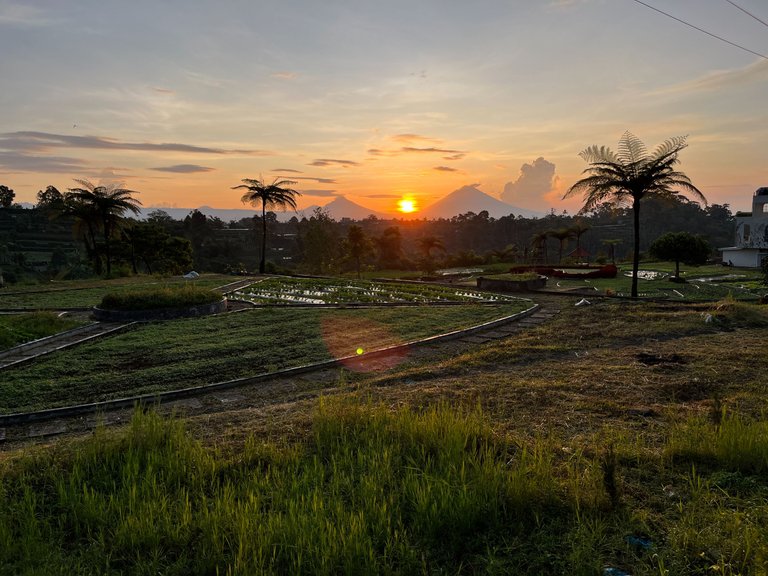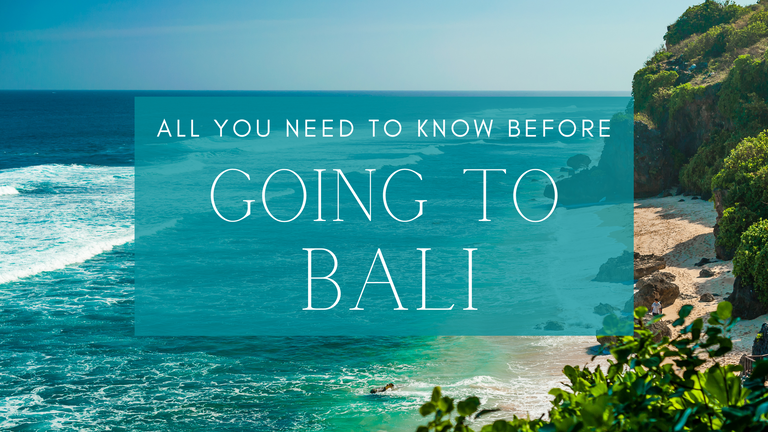
Good day to you all, Hivers! Today, I'm bringing you the last blog post from Bali. There will be one more from Indonesia, but for Bali itself, this is the last one. My friends asked me about some of these things so I put them together and hope you might find them useful. So let's dive in!
First things first: Visa
If you’re traveling to Bali as a tourist, you don’t need to worry about getting your visa at the embassy in your country and going back and forth. Indonesia offers an easy way to get into the country: A visa on arrival. When you arrive at the airport, you pay 500 000 IDR (which is approximately 35 USD) and then get that visa stamped and glued to your passport. That is to ensure you don’t overstay, and they check that when you leave Indonesia.
The visa on arrival is valid for 30 days, with an option of extending it once for another 30 days. Make sure you always have a valid visa, as the immigration office is very strict in Indonesia, and that you always follow the visa rules. Working on a tourist visa is strictly prohibited, and you can be fined or even deported if you’re caught violating it. They also have agents in Facebook groups to take care of that. So be careful if you’re promoting something, as it may get you in trouble. There are known cases of people being deported for posting a free room in their flat on Facebook groups. It was considered a promotion which is not allowed on a tourist visa.
Getting there
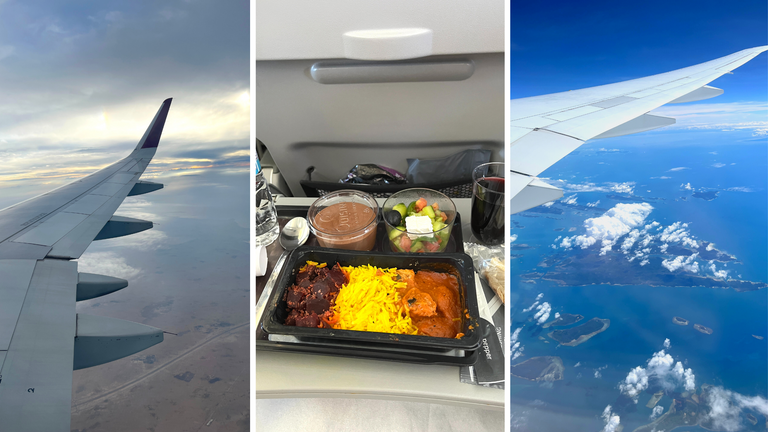
Getting there from Europe seems like a lot, but with a good choice of airline and itinerary for the journey, it might even become a pleasant experience.
The cheapest return flights that I found when I was buying my tickets in November were around 770€. However, the total time for the journey was over 30 hours, and you had to transfer twice and fly with three different airlines. This can get problematic, especially on long-haul flights with high chances of delays, and you need to deal with different countries‘ policies.
That’s why the most popular and convenient ways of getting to Bali are with the world’s most luxurious airlines, either Qatar Airways or Emirates. It usually only includes one transfer, and the airline takes care of your luggage while you’re transferring.
The ticket isn’t much more expensive than the cheapest on the market, and it’s definitely worth investing in. The total flight time from Prague to Denpasar was 15 hours, which is very long, and a comfortable seat and all-inclusive food and drinks service, as well as care packages and a blanket with a pillow, really make a difference. I was tired, but much less than I had anticipated. The flights were really comfortable, and in the end, it didn’t even feel like 15 hours.
Getting around
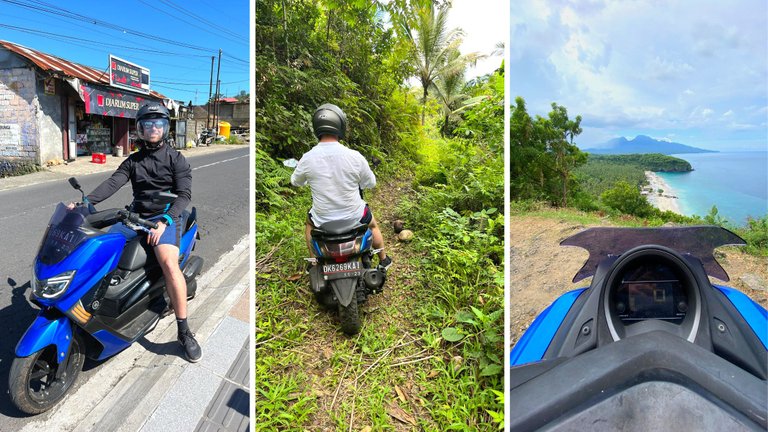
The most convenient way of transport in Bali is definitely on a scooter. In Denpasar, Ubud, and other populated and popular areas, mainly in the south, the traffic can sometimes get MAD. With a car, you just get stuck in it, and there is absolutely nothing you can do about it. Whereas on a scooter, there are opportunities to just drive past the cars and get to your desired destination much faster.
However, I advise you to practise before going into the wild roads, as the traffic can really get overwhelming at first. There are basically no rules, except for two: who honks, drives first; and you drive where possible (you’ll understand what I mean when you get there).
Surprisingly, they don’t really care about speeding that much, but care more about what you’re wearing. It is culturally very inappropriate to drive shirtless, and for safety reasons, you must wear helmet at all times.
If you don’t feel comfortable driving in this kind of traffic, you can always rent a car with a driver, or a taxi, both a car and a scooter. The best part: they are very cheap. For example, to get from one side of Ubud to the other, I paid approx. 0,8€ to my scooter taxi! If you’re planning a longer trip, it is best to rent a car with a driver, it can cost you between 40-60€ per day, and you can visit anywhere! For my scooter taxi, I used the apps Gojek and Grab. You can also order food and groceries via these apps, so I highly recommend downloading them (for free).
Safety
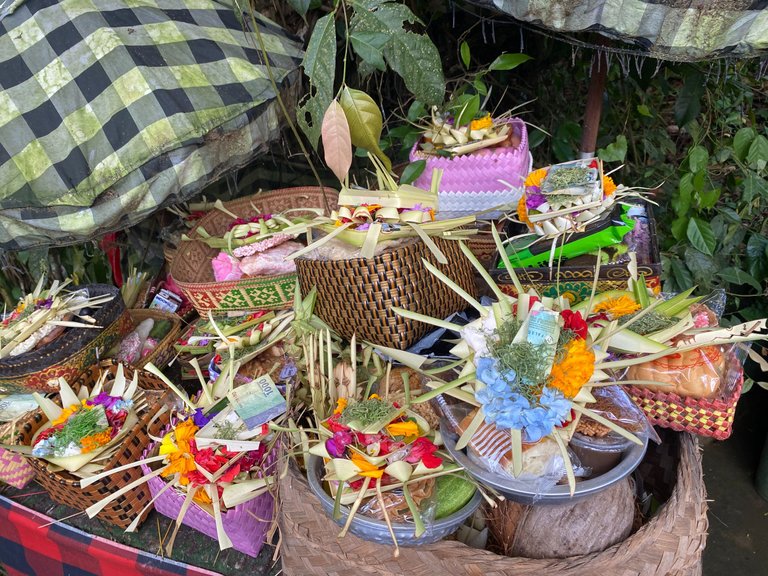
Bali is generally very safe. Its biggest problem is pickpockets, especially in the tourist areas. So make sure to take care of your personal items and never bring a lot of money with you. I personally usually carried a maximum of 1 million IDR and insured my phone for theft. Fortunately, I didn’t need any of my insurance.
When it comes to wildlife, the biggest threat is a sea snake. Anytime you see something like it in the water, never touch it! They are deadly poisonous, and there is no antidote. But don’t worry; there are not that many: I haven’t seen ANY snake, both on land and in water, for the whole month I was staying there. There are also some spiders (quite big) and hornets (I got even stung by one – make sure to carry antihistamines in case of an allergic reaction), but if you follow common sense and don’t try to touch animals that you don’t know, you’ll be safe.
Costs
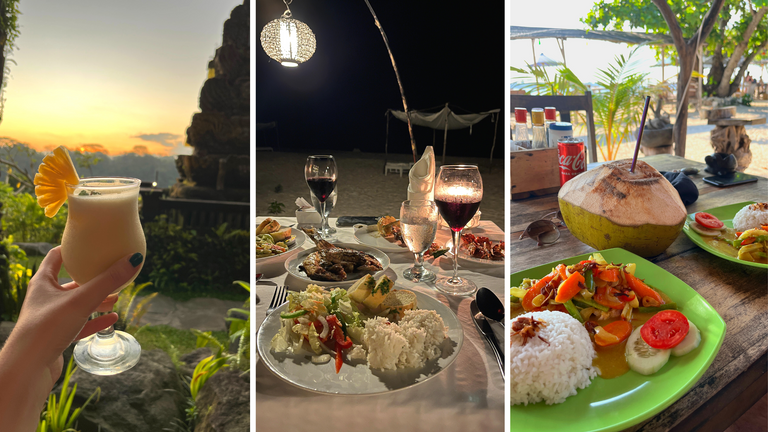
Bali is generally very cheap. Outside of the accommodation, we spent around 450€ in TOTAL for two weeks for two people. And we only ate in restaurants or got food delivered, paid many entrance fees, the fuel for our scooter, and bought multiple souvenirs.
The truth is, you can spend MUCH more depending on where you choose to eat. Some restaurants, especially in the main tourist areas, can get expensive. The range is wide so you can decide how much you want to spend. The cheapest version is always a warung, a local restaurant, where you can get a full meal for 1-2€. But there is always a risk of getting the infamous „Bali belly,“ food poisoning caused by many local bacteria. Cheaper restaurants can feed you for 2-5€, which is still incredibly cheap.
Generally speaking, you can get local stuff for very cheap: fresh fruit, fresh juices, rice, chicken, vegetables… everything they can grow or make grow in Bali is sold for cheap. But whatever needs to be imported becomes very expensive. That applies mainly to alcohol: except for the local beer Bintang, you need to count on higher prices if you plan on having cocktails or wine. A bottle, for example, of reasonably good wine can be bought for 8€ in my country, while you will pay 25€ for the same quality bottle in Bali. A good solution can be mocktails: a non-alcoholic version of your favorite drinks. I had an amazing virgin pina colada in Ubud for 1/3 of the price of the alcoholic version.
The fuel is also very cheap, especially when you drive a scooter that doesn’t eat that much. Always make sure to buy Perta Max (not Lite), as it is of higher quality. You pay around 0,8€ per liter.
Where to stay?
There is a wide variety of accommodations of all types and price ranges, so I won’t get into that. Area-wise, try to think about your desired itinerary first. Are you planning a dreamy beach holiday? Then it might be perfect for you to stay in the south where the beautiful beaches are. Do you want to „nomad around“? Then Canggu is your perfect destination. Want to discover more of Bali without having to move around constantly? Choose a place in the island’s center, for example, Ubud. Don’t want to spend too much time driving? Consider multiple accommodations in different places on the island. If I were to go to Bali again, I would choose the latter option.
What else?
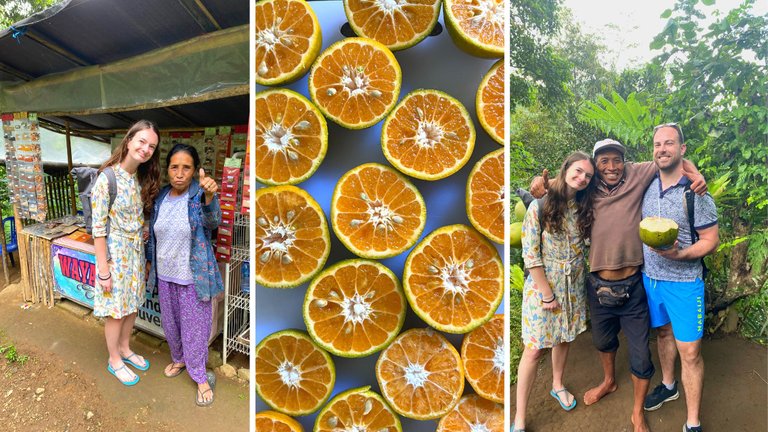
There are obviously many other things to keep in mind. For example:
- It’s a tropical island. Make sure always to carry sunscreen. You don’t want to burn the first thing after arrival. And sunscreen is quite expensive in Bali.
- Please be mindful of locals. They are very religious and often hold ceremonies in their temples, sometimes blocking the road and closing their shops. It is how it works in Bali, and we should respect it.
- Avoid all the plastic that you can. Locals love plastic but are not used to recycling, and the whole island (and country in general) have a HUGE plastic (and waste) problem. So avoid all waste you can and consider supporting a non-profit organization trying to contain this waste. I personally support Sungai Watch as my personal, reliable source confirmed it is a trustworthy organization that does its job well. You can support them here:
- Buy directly from locals. It’s usually cheaper, and you’re supporting their family directly. It is important, especially now, after 3 years of covid when locals were often left with no money and no one to sell to. Some great things you can buy from them include fruits and veggies, rice, coconuts, many spices and herbs, natural cosmetics, or artwork. We bought this beautiful picture below for around 5€ and it will for sure remind us of our great time in Bali forever.
Is there anything else you'd like to know that I didn't mention? Drop me a comment and I'll do my best to give you all the information needed :)
For more travel content like this, follow me on PeakD, Liketu & Instagram.

